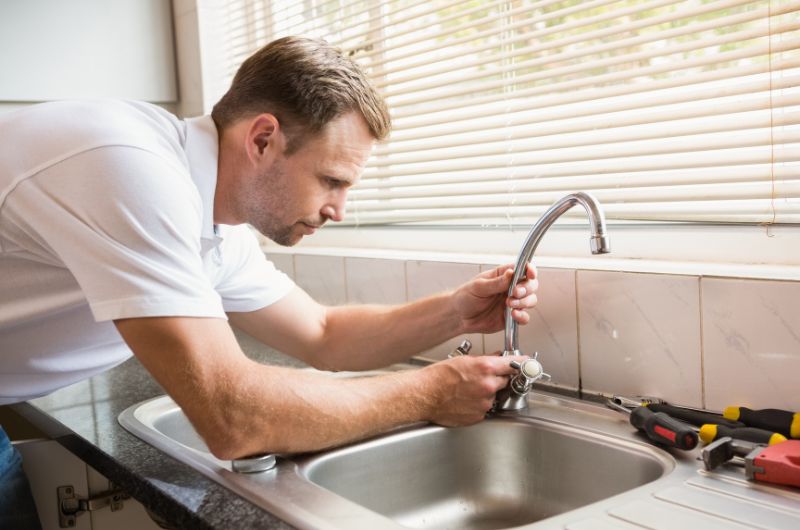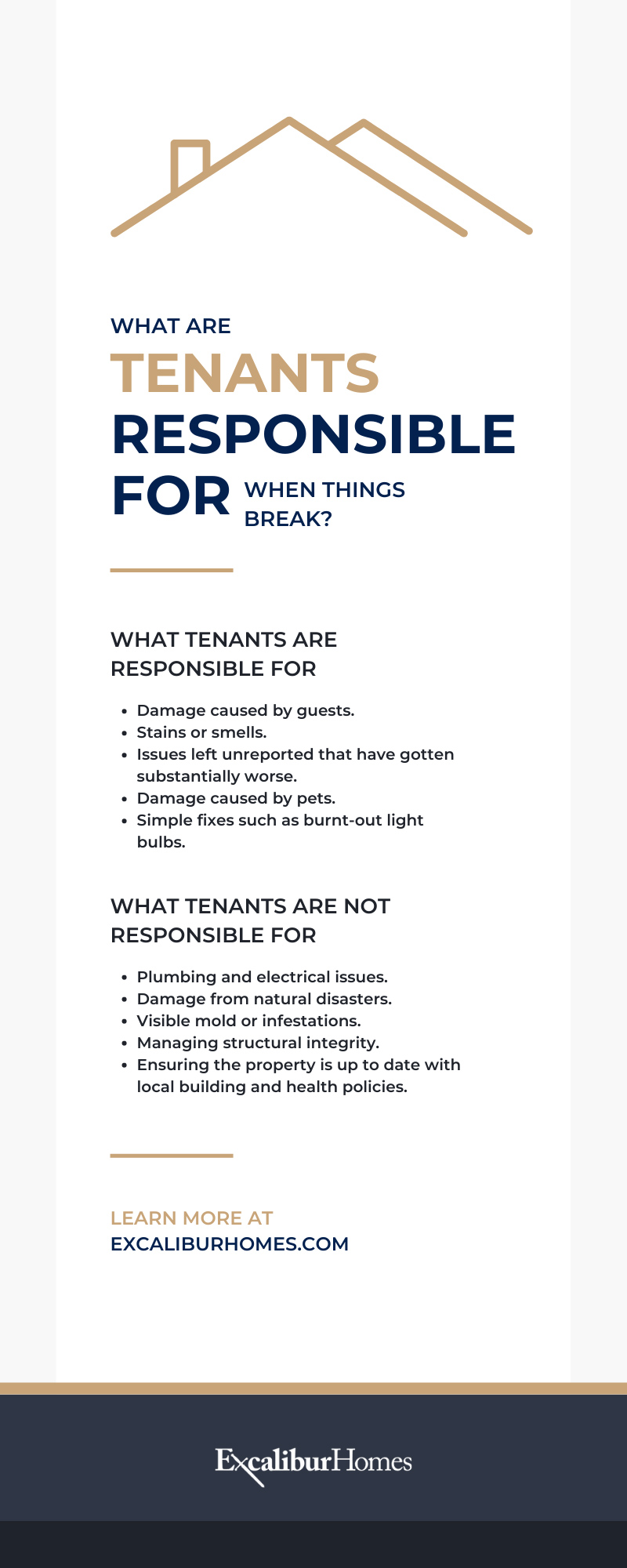
At some point, something on your property is bound to break, and when it does, you need to be aware of your rights and responsibilities as a landlord. Luckily, the general laws and customs are well outlined and easy to understand once you have the right knowledge. If you’re disagreeing over who should pay or aren’t sure what you’re accountable for, read on to learn what tenants are responsible for when things break.
Look at the Lease Agreement
First and foremost, your lease agreement is your biggest tool and your best ally when it comes to issues such as this. When you have a solid lease agreement, you have a written contract that clearly states what a tenant is and isn’t responsible for. If not, you may be shooting yourself in the foot and end up having to pay for property damage that isn’t your fault or your responsibility. For example, property damage isn’t always damage; sometimes, it’s unauthorized major repairs or renovations. If your lease agreement doesn’t include these types of clauses, you could wake up one day with a pink property!
Overall, your lease agreement should address plumbing, HVAC, cosmetics, and other issues. This is what’s known as a maintenance policy, which should also include a maintenance request policy, and if you don’t have one, you should add it right away. This is for the reasons stated above and to ensure that you have a paper trail to cover your tracks. If they break the agreement, you’re within your legal rights to pursue compensation, and having a maintenance request form leaves a clear and tangible paper trail.
What Tenants Are Responsible For
In general, tenants are responsible for damage that occurred due to negligence, misuse, or any other damage incurred by themselves. In most states, the tenant is responsible for keeping the unit clean and using any amenities or appliances responsibly and safely. Repairs tenants need to pay for themselves include:
- Damage caused by guests.
- Stains or smells.
- Issues left unreported that have gotten substantially worse.
- Damage caused by pets.
- Simple fixes such as burnt-out light bulbs.
Most of the time, property damage is an accident, and you won’t have many issues getting your tenant to pay for or repair what’s broken. If you’re dealing with an agreeable and responsible tenant, it’s best in these situations to sit down and come up with a payment plan. You don’t have to immediately take it out of their security deposit, although you certainly can. Leaving open a line of communication and talking about the steps moving forward is the best way to get the job done and keep the tenant.
Other times, property damage can be due to negligence. Again, while most of the time, tenants will understand the issues, others may not be so agreeable. In worst-case scenarios, they may have even damaged the property on purpose due to a disagreement, eviction notice, or other issues. However, no matter the case, it is best to talk to the tenant first and be as calm and agreeable as possible. If the sentiment is not reciprocated, then other measures can be taken, which will be discussed later in this article.
What Tenants Are Not Responsible For
As a landlord, it is your responsibility to provide your tenant with a safe and habitable home. Any damage that poses a threat, is part of normal wear and tear, or is a major renovation should be handled and paid for by you. This is where your maintenance request policy comes in to make assessing damage and prioritizing requests easier so you can find the right maintenance specialists and get the job done. The more dangerous the property damage is, the faster you need to deal with it. The longer it stays that way, the more likely you are to receive a housing violation complaint.
Landlords are responsible for repairing:
- Plumbing and electrical issues.
- Damage from natural disasters.
- Visible mold or infestations.
- Managing structural integrity.
- Ensuring the property is up to date with local building and health policies.
Remember that if something in the list above occurred due to tenant negligence, such as leaving food all over the floor resulting in an ant infestation, that is not your responsibility. The issue is that instances such as those may be difficult to prove, and this is, in large part, a reason why landlords perform a move-in inspection. Typically, a landlord will take pictures or video of the property on move-in day to have a visible record of the property. You can also have the tenant sign a contract that states the property was clean, up to code, and in working condition on move-in day. Either way, it’s best to walk through the property with the tenant and discuss the state of the unit as well as your expectations.
When you have proof of what the property looked like and the state it was in before the tenant moved in, you can easily prove that damage isn’t your fault. Likely, you don’t want to take this evidence to the court, but it’s certainly a helpful tool and can motivate a tenant to pay for the damage.
How Much To Charge for Repairs
So if you’ve determined that the property damage is the tenant’s responsibility, how much should you charge? Remember, the tenant can hire a maintenance worker to handle the issue themselves. But some landlords are not comfortable with this, and if so, it should be stated in the lease agreement. If they’re not hiring their own contractor, you’ll need to find one. In these cases, finding the most expensive repairperson may be tempting, especially if the damage was done purposefully, but this is a big mistake. If a tenant believes that the payment is too expensive in proportion to the actual damage, you can end up in serious legal trouble and spend more money than it’s worth. It’s best to just charge the amount that you paid to get the work done and leave it at that.
Additionally, you can take the money out of the security deposit if you want to, but doing so without discussing it with the tenant can cause an unnecessary rift. But what happens when a tenant does the damage on purpose or even refuses to pay? It’s best to continue as normal and inform them that you’re taking the money out of the security deposit. But that may not pay for all the damage, and you may have to begin the eviction process or even call the police if they’re still damaging your property. If all is said and done, and they still refuse to pay you, then you’ll have to move on to small claims court to get the money back.
Now that you have a better idea of what tenants are and aren’t responsible for when things break, you’re better equipped to form a plan of action moving forward. However, if you have an investment property in Nashville, TN, and need help resolving tenant issues or finding someone to fix property damage, Excalibur Homes is here to help. Here, we have knowledgeable and experienced property managers who are dedicated to helping you handle your responsibilities as a landlord and making that passive income a little more passive.



